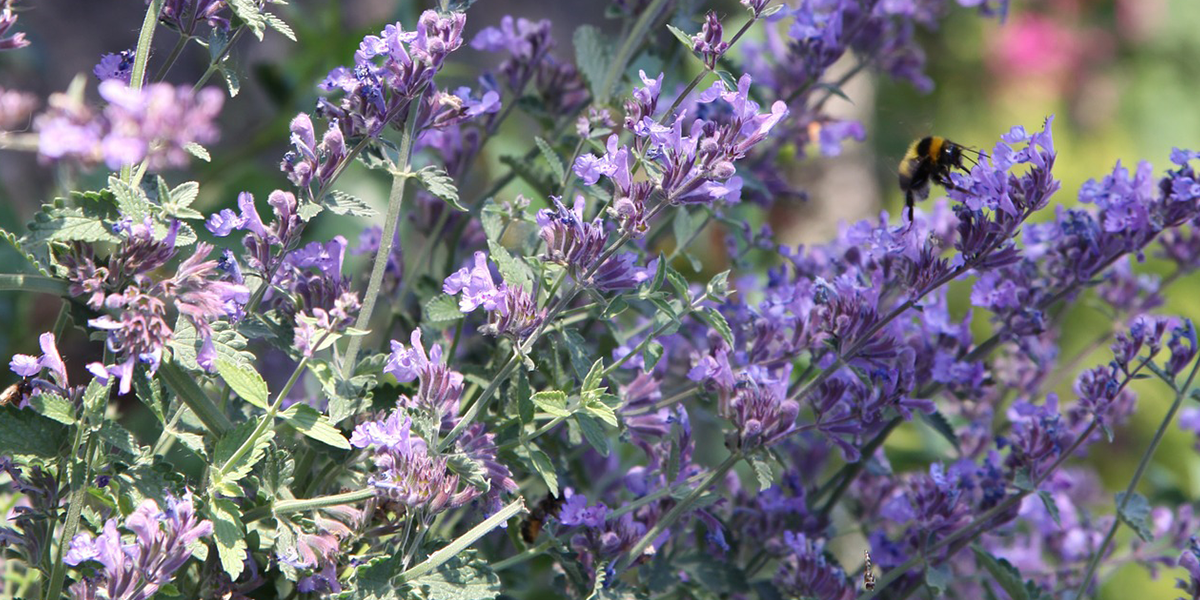Nepeta cataria is a plant many cat caregivers will be familiar with, but commonly it is referred to as catnip. The active chemical in the plant is called nepetalactone.
Cats have an incredible sense of smell, and catnip works when the volatile oil within the plant enters the cat’s nasal tissue when they sniff, which is then detected by the olfactory bulb within their brain. Its effects on cats are harmless, nonaddictive and short-lived, lasting approximately 10 minutes, when they will then become resistant to its effects for approximately 30 minutes.
Catnip has been found to elicit behaviours similar to those seen in contexts that indicate a positive welfare state, e.g., play-like behaviours. An encounter with the stems or leaves of the plant can have a cat exhibiting a range of behaviours, including:
- Sniffing, licking, biting and chewing the plant material
- Facial rubbing
- Body rolling
- Increased general physical activity
- Grooming
- Predictable playful behaviours
Catnip elicits these behaviours in around 70-80% of cats. Their response to the plant is hereditary (a genetic trait passed on from their parents). Catnip has no effects on cats until they are over three months of age, therefore, if a kitten has been presented with catnip under this age and has not responded to its effects, it is worth reintroducing it at a later age.
Catnip can be used in its dried form in many products to help stimulate the cat’s sense of smell, enriching their environment. Catnip can help to encourage a cat to play with a toy and draw attention to scratching posts (encouraging scratching in an appropriate location to maintain their claws and mark their territory). Catnip toys can easily be made at home using dried catnip to help encourage daily play with your cat.
Catnip can also be grown outside in flower beds and pots to stimulate the cats’ senses in their garden.
Alternative plants to catnip have also been reported as enriching to cats; silver vine, Tatarian honeysuckle and valerian root have all been found to have similar effects to catnip. Many cats will respond positively to at least one of these plants, and therefore for cats that do not respond to catnip, these other plants are good alternatives to try.
Thank you for visiting our website, we hope you have found our information useful.
All our advice is freely accessible to everyone, wherever you are in the world. However, as a charity, we need your support to enable us to keep delivering high quality and up to date information for everyone. Please consider making a contribution, big or small, to keep our content free, accurate and relevant.
Support International Cat Care from as little £3
Thank you.
Donate Now


